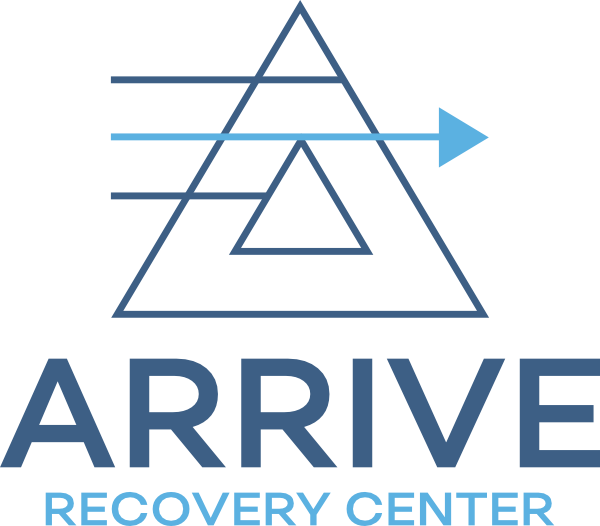Opiate Addiction Treatment in Thousand Oaks
Opiate addiction represents a critical challenge affecting individuals worldwide, irrespective of their geographic, social, or economic status. Located in the serene environment of Thousand Oaks, just outside Los Angeles, Arrive Recovery Center is dedicated to offering comprehensive care to those grappling with addiction. Our holistic approach to opioid addiction treatment combines innovative therapeutic techniques with robust community support aimed at fostering recovery and resilience well beyond the treatment period.
Understanding Opiates
Opiates are a class of drugs derived from the opium poppy plant or synthetically manufactured to produce effects similar to those of opium. This category can include:
- Oxycodone (OxyContin, Percocet)
- Hydrocodone (Vicodin, Norco)
- Hydromorphone (Dilaudid)
- Oxymorphone (Opana)
- Heroin (diacetylmorphine)
- Fentanyl and its analogs (carfentanil, sufentanil)
- Methadone
- Tramadol
- Meperidine (Demerol)
- Buprenorphine (Suboxone, Subutex)
- Tapentadol (Nucynta)
- Levorphanol
- Butorphanol
Addiction to these substances is characterized by a strong physical and psychological dependence, compelling individuals to use them despite experiencing negative consequences.
Risk Factors for Opiate Addiction
The path to opiate addiction can begin in various ways, starting from:
- Prescription medications for pain relief post-surgery or injury.
- Recreational use seeking euphoric effects.
Key factors increasing addiction risk include:
- Genetic Predisposition: Family history of addiction.
- Environmental Influences: Peer pressure, stress, and availability.
- Personal History: Previous addiction or mental health disorders.
This complexity underscores the importance of a personalized treatment plan, addressing the unique aspects of each individual’s addiction.
Impacts of Opioid Addiction
The effects of opioid addiction are significant and far-reaching, impacting:
- Physical Health: Development of tolerance and dependence, with a high risk of overdose, particularly from potent substances like fentanyl.
- Mental Health: Increased risk of depression and anxiety, with addiction taking a toll on psychological well-being.
- Personal and Professional Life: Neglect of responsibilities, strained relationships, and financial instability.
Signs of Opiate Addiction
Identifying opioid addiction in oneself or a loved one can be challenging, especially in the early stages. The signs and symptoms of opioid addiction vary from person to person but generally include a combination of physical, behavioral, and psychological indicators.
Physical Signs:
- Increased Tolerance: Needing larger doses of opiates to achieve the same effects, which can lead to consuming higher doses than prescribed.
- Withdrawal Symptoms: Experiencing symptoms such as nausea, sweating, shaking, and anxiety when not using opiates, indicating physical dependence.
- Neglected Appearance: Individuals may show less interest in personal hygiene or how they appear to others.
- Changes in Sleep Patterns: This can include sleeping more or less than usual, or at irregular times.
Behavioral Signs:
- Preoccupation with Obtaining and Using Drugs: Spending significant time and effort to obtain, use, and recover from the effects of opiates.
- Isolation from Loved Ones: Withdrawing from family and friends or losing interest in activities previously enjoyed.
- Financial Difficulties: Experiencing financial issues due to spending money on opioids, possibly leading to borrowing or stealing money to fund the addiction.
- Risky Behavior: Engaging in dangerous activities, such as driving under the influence of opiates or using dirty needles.
Psychological Signs:
- Mood Swings: Experiencing rapid and extreme changes in mood, from euphoria when using opiates to depression or irritability when not.
- Anxiety and Depression: These can be both a precursor to and a result of opiate addiction, with the cycle of addiction exacerbating these conditions.
- Denial: Refusing to acknowledge the extent of the use of opiates or the impact it has on their life and relationships.
Opioid use disorder (OUD) is a progressive disease that can lead to more severe health complications, including overdose and death, if not addressed. The ability to recognize these signs in oneself and in friends or family members can be the first step toward seeking help.
It’s also important to understand that these signs might not always be obvious or may be hidden by the individual out of shame, guilt, or fear of judgment. Creating an environment where individuals feel safe to express their struggles and seek help is crucial in encouraging those affected by opioid addiction to come forward.
Treatment for Opiate Addiction
Recovery from opioid addiction requires a comprehensive approach, incorporating various treatments to address both the physical dependence and psychological aspects of the addiction.
- Medication-Assisted Treatment (MAT): This method uses medications such as buprenorphine, methadone, and naltrexone in combination with counseling to reduce cravings and withdrawal symptoms.
- Behavioral Therapies: Approaches like cognitive-behavioral therapy (CBT) and motivational interviewing (MI) are critical for addressing the psychological aspects of addiction, helping individuals to develop coping strategies and rebuild their lives.
- Support Groups: The role of peer support in the recovery journey cannot be overstated, offering individuals a sense of community and belonging that is essential for long-term recovery.
Why Choose Arrive Recovery Center for Opiate Addiction Treatment in Thousand Oaks, CA?
Arrive Recovery Center is committed to offering personalized, compassionate care for individuals struggling with opioid addiction. Our outpatient treatment center, located in Thousand Oaks in Ventura County, provides an ideal setting for those seeking recovery away from city life.
Substance Abuse Treatment Programs in Thousand Oaks
Our center offers a spectrum of programs designed to meet the varying needs of our clients:
- Intensive Outpatient Program (IOP): For those requiring structured, intensive treatment alongside the ability to fulfill daily responsibilities and continue working. IOP is typically three days per week in the mornings or evenings.
- Partial Hospitalization Program (PHP): Offers more intensive support without needing full-time hospitalization. During PHP, clients typically attend programming five days per week and return home or to a sober living facility at the end of the day.
- Outpatient Program (OP): Focuses on relapse prevention and ongoing support for those further along in their recovery journey. This level of care is typically one to two days per week.
- Sober Living: We also provide sober living options to accompany outpatient treatment, which helps ensure a safe, substance-free environment conducive to recovery and independence.
Opiate Addiction Treatment Near Los Angeles, California
We recognize the courage it takes to seek help. At Arrive Recovery Center, we’re here to support you from the first step through the creation of an individualized treatment plan that acknowledges your unique journey toward recovery.
Our Thousand Oaks location offers an ideal mix of accessibility and privacy, set against Ventura County’s natural beauty, providing a peaceful environment conducive to healing and personal growth. Our addiction treatment center is easily accessible to residents in surrounding communities like Malibu, Calabasas, Westlake Village, Simi Valley, Moorpark, Newbury Park, Camarillo, Agoura Hills, and Ventura.
Begin Healing from Addiction Today
Embarking on this path with Arrive Recovery Center means more than just overcoming addiction; it’s about rebuilding your life on a foundation of health, understanding, and resilience. Our comprehensive approach includes access to cutting-edge treatments, supportive group therapies, and resources designed to empower you at every stage of recovery. Together, we’ll work to address the challenges of addiction and enhance your overall quality of life, paving the way for a future filled with hope and possibilities.
If you or a loved one is struggling with opioid addiction, reach out to Arrive Recovery Center today. Learn how we can support you in taking the initial steps toward a life free from addiction. Let’s journey toward healing, recovery, and a brighter future together.
Contact us today to begin your path to healing and sobriety.

